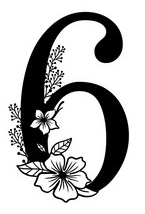Director: Woody Allen
Stars: Cate Blanchett, Bobby Cannavale, Sally Hawkins
First off, a disclaimer of sorts; I’ve never reviewed a Woody Allen movie before. There are two good reasons for this, and I hope to set aside both in order to do this film justice. The first is that I haven’t seen many Woody Allen movies. The second is that I haven’t seen many Woody Allen movies because the few I have seen have not charmed me. The last one I caught was Midnight In Paris in which Owen Wilson did his best, most insufferable Woody Allen impersonation for the better part of 90 minutes. Colour me disinterested. Allen’s egotistical verbosity just doesn’t gel with me as a viewer. He comes off most frequently as a snob and a showoff, arrogant and condescending, and not a particularly dynamic filmmaker. So there’s that.
And so another year, another picture baring his name. That same font again. The generic, uninspired promotional art. The wispy, noncommittal title. I initially filed Blue Jasmine under who-the-hell-cares and made plans to avoid it. Better for everyone if I skipped this one, right? But then the reviews started coming out. Five shining pointed stars abound. And the praise for Cate Blanchett – an actress I’ve always kind-of admired but never really enjoyed – grew and grew. I got picked up on the groundswell and was carried to the cinema after all.
But this isn’t about me. I just wanted to give some sense of context for how I’ve approached this film; with hope. Hope that this is a resurgence of the maverick Woody Allen that I’ve somehow never quite met before.
So what’s the story? Let’s introduce Jasmine (Cate Blanchett). Recently widowed and cast destitute thanks to the suicide of financial swindler Hal (Alec Baldwin), we meet her travelling first class to stay with her sister Ginger (Sally Hawkins) in San Francisco. They’re both adopted, but Jasmine had the better genes, don’t you know? On the flight she’s gabbing away to the woman sitting next to her, reminiscing on this and that to a stranger who is too polite to voice her disinterest. Initially it seems we have another of Allen’s windbag protagonists on our hands, but the more we learn of Jasmine the more we’ll come to understand that this is less a disagreeable personality trait and more of a psychological symptom.
Jasmine has been used to the finer things, but with her former life in tatters she’s coming back down to Earth with a bit of a bump. Ungrateful of her sister’s hospitality, she can only spit disapproving comments and judgemental remarks, courting little sympathy. She immediately takes a dislike to Ginger’s grease-monkey fiance Chili (Bobby Cannavale) and is at a loss when confronted with children. Flashbacks reveal she even has her own son – the now-estranged Danny. God only knows what his upbringing was like.
Through the course of the film we time-jump to chart both how Jasmine’s affluent downfall came to be, and her clumsy attempts to course-correct, be it through a half thought-out return to further education or through the more vacuous hope of bagging a replacement husband. Someone with prospects.
As we go, Jasmine peels away like an onion. It’s a horrible, trite, overused metaphor, but it’s fitting. For the further we go the more her mascara will run. This journey will cost tears. Despite (or even because of) her upper-class trivialities, Jasmine is revealed as a woman barely holding herself together, prone to psychological breaks. She pops Xanex like Tic Tacs, forever staving off another potential collapse. The best anyone in her wake can do is adopt crash procedures and assess damage limitation.
I have to go with the crowd here and tip my hat to Blanchett. Commanding attention in every scene of the film, this is one of the standout performances of the year and she’ll be a shoe-in come awards season. All of the hyperbole is justified. Jasmine is a complex creation, swimming in grief, guilt, shame and denial, unable to untie her own knots. For such a monster, she even manages to draw our sympathies, albeit only occasionally. Maybe it’s just our pity. Blurring the line between protagonist and antagonist, she’s a wrecking ball; the more fragile, human counterpart to Kristen Scott Thomas in Only God Forgives.
That might be a step too far. Jasmine’s emotional wounds aren’t quite so perverse, but they’re not far off. As commendably as she’s supported (especially by Hawkins, who is terrific here), Blachett makes no qualms about stealing the show.
With no male lead to speak of, Allen’s randy alter-ego gets divided up into bit-part caricatures played by Michael Stuhlbarg and Louis C.K. In fact all of the film’s marginal characters suffer as Allen draws lazily from stereotypes; seemingly a continuing by-product of his past in stand-up. Upper and lower classes alike are sketched so broadly as to appear equally ridiculous. And in the middle is Jasmine, spinning around like a medicated Catherine wheel, forever in danger of setting fire to everything.
There are some great moments. Jasmine’s woeful attempt at ‘babysitting’ leads to a confessional that’s as absurd as it is tragic, and a late-in-the-day car ride leaves her at her most discombobulated. Overall however, Blue Jasmine is rather a compromise. It’s a career-best Cate Blanchett performance that just happens to be happening in a Woody Allen movie. For some, perhaps even most, that will mean manna from heaven. For me, it means a striking lead actress elevating another good-but-not-great picture. In the end, after all, it does come down to a matter of taste.
Blue Jasmine is probably the best Woody Allen film I’ve seen yet. For whatever that’s worth.


1 thought on “Review: Blue Jasmine”